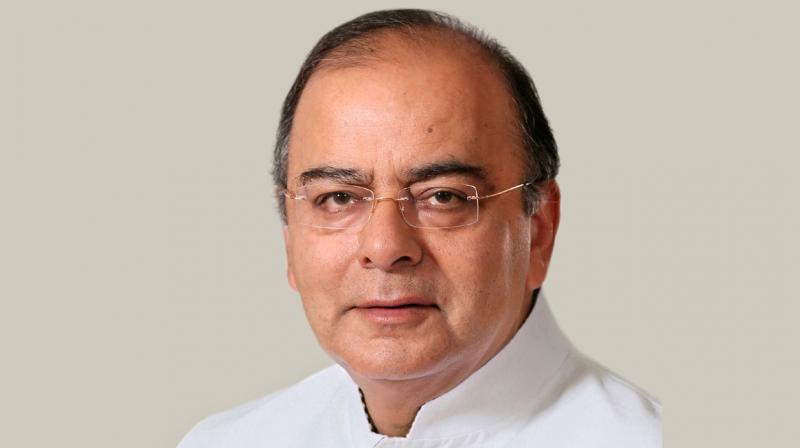Annual mop up to take Rs 3,000 crore hit

New Delhi: To woo small businesses before Lok Sabha elections, the GST Council headed by Union finance minister Arun Jaitley on Thursday decided that small and medium enterprises (SMEs) with annual income of up to Rs 40 lakh will be exempted from paying GST against current threshold of Rs 20 lakh. The move to double the exemption limit will benefit 20 lakh small businesses who will be pushed out of GST net.
The changes announced on Thursday will help business severely hit by note ban announced in November 2016 and lacking resources to comply with the new indirect tax regime introduced in July 2017.
On Thursday, the GST Council took a series of steps to make the life of SMEs easy, including bringing a composition scheme (where taxes are lower and compliance is easier) for small service providers and hiking annual turnover threshold to avail composition scheme by Rs 50 lakh to Rs 1.5 crore for goods.
For North East and hilly states, the threshold limit for exemption from GST has been increased to Rs 20 lakh from Rs 10 lakh. However, states can decide whether they want to keep the exemption limit at Rs 20 lakh or hike it Rs 40 lakh. This option has been provided because some states like Puducherry fear loss of tax payer base if exemption limit is hiked to Rs 40 lakh.
“This is a one time exception and does not affect businesses with inter-state supplies,” said Mr Jaitley.
For service providers the threshold to register for GST will continue to be Rs 20 lakh.
The GST Council decided that now SMEs with annual turnover of Rs 1.5 crore can opt for composition scheme where they have to pay mere 1 per cent tax, against current threshold of annual turnover Rs 1 crore.
Those under composition scheme will have to file only one annual return but payment of taxes will remain quarterly.
The Council decided that now service providers up to a turnover of '50 lakh would be eligible to opt for the GST composition scheme and pay a tax of 6 per cent. Also companies which provide both goods and services can avail this composition scheme.
The decisions on the composition scheme alone would have an annual revenue impact of about Rs 3,000 crore. These decisions will come into effect from April 1.
The Council also allowed Kerala to levy a 1 per cent calamity cess on intra-state sale of goods and services for a period of up to two years to mobilise revenues to meet the cost of rehabilitating parts of states that were ravaged by floods last year.
“Each one of these decisions is intended to help the SMEs. You have given them various options. If they are in services sector, they can get 6 per cent compounding, if they are in manufacturing and trading up to Rs 1.5 crore they can get 1 per cent compounding. They can make use of exemption of up to Rs 40 lakh,” said Mr Jaitley.
If all states implement the change, the annual revenue loss on account of doubling exemption limit is likely to be Rs 5,200 crores. States that do not want to revise the exemption limit have been given the option of continuing Rs 20 lakh as the threshold.
The decision assumes significance due to BJP’s poll debacle in Madhya Pradesh, Rajasthan and Chhattisgarh and reports that small traders upset over GST had vented their anger against the saffron party.
The Council decided that now service providers up to a turnover of Rs 50 lakh would be eligible to opt for the GST composition scheme and pay a tax of 6 per cent. Also companies which provide both goods and services can avail this composition scheme.

